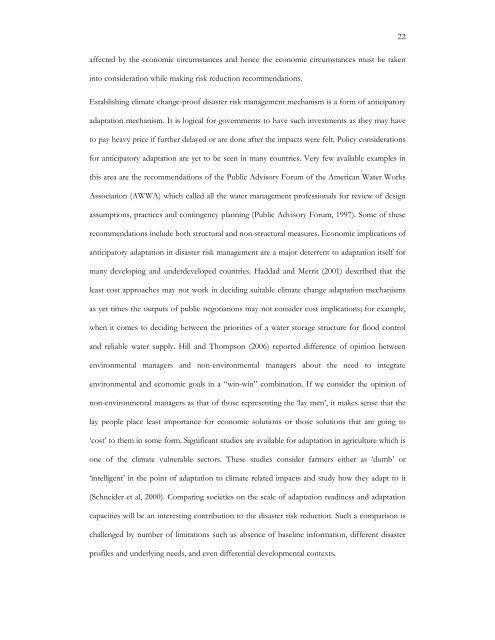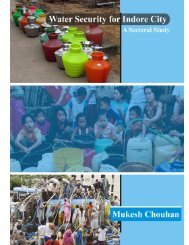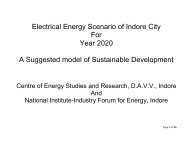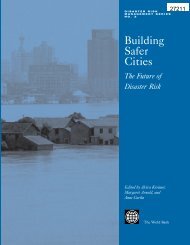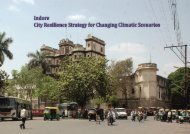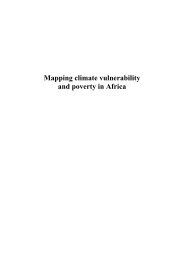Climate Change and Local Level Disaster Risk Reduction Planning ...
Climate Change and Local Level Disaster Risk Reduction Planning ...
Climate Change and Local Level Disaster Risk Reduction Planning ...
Create successful ePaper yourself
Turn your PDF publications into a flip-book with our unique Google optimized e-Paper software.
affected by the economic circumstances <strong>and</strong> hence the economic circumstances must be taken<br />
into consideration while making risk reduction recommendations.<br />
Establishing climate change-proof disaster risk management mechanism is a form of anticipatory<br />
adaptation mechanism. It is logical for governments to have such investments as they may have<br />
to pay heavy price if further delayed or are done after the impacts were felt. Policy considerations<br />
for anticipatory adaptation are yet to be seen in many countries. Very few available examples in<br />
this area are the recommendations of the Public Advisory Forum of the American Water Works<br />
Association (AWWA) which called all the water management professionals for review of design<br />
assumptions, practices <strong>and</strong> contingency planning (Public Advisory Forum, 1997). Some of these<br />
recommendations include both structural <strong>and</strong> non-structural measures. Economic implications of<br />
anticipatory adaptation in disaster risk management are a major deterrent to adaptation itself for<br />
many developing <strong>and</strong> underdeveloped countries. Haddad <strong>and</strong> Merrit (2001) described that the<br />
least cost approaches may not work in deciding suitable climate change adaptation mechanisms<br />
as yet times the outputs of public negotiations may not consider cost implications; for example,<br />
when it comes to deciding between the priorities of a water storage structure for flood control<br />
<strong>and</strong> reliable water supply. Hill <strong>and</strong> Thompson (2006) reported difference of opinion between<br />
environmental managers <strong>and</strong> non-environmental managers about the need to integrate<br />
environmental <strong>and</strong> economic goals in a “win-win” combination. If we consider the opinion of<br />
non-environmental managers as that of those representing the ‘lay men’, it makes sense that the<br />
lay people place least importance for economic solutions or those solutions that are going to<br />
‘cost’ to them in some form. Significant studies are available for adaptation in agriculture which is<br />
one of the climate vulnerable sectors. These studies consider farmers either as ‘dumb’ or<br />
‘intelligent’ in the point of adaptation to climate related impacts <strong>and</strong> study how they adapt to it<br />
(Schneider et al, 2000). Comparing societies on the scale of adaptation readiness <strong>and</strong> adaptation<br />
capacities will be an interesting contribution to the disaster risk reduction. Such a comparison is<br />
challenged by number of limitations such as absence of baseline information, different disaster<br />
profiles <strong>and</strong> underlying needs, <strong>and</strong> even differential developmental contexts.<br />
22


